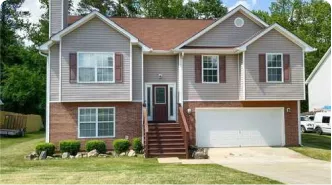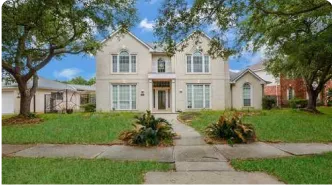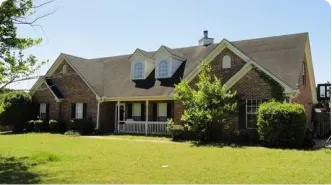Real estate investors sometimes avoid hiring a property manager for their vacation rental on Airbnb due to confusion over management fees, but this can hinder the optimization of their rental's performance and passive income. This article aims to clear up any misunderstandings by explaining everything about the typical Airbnb management fees, including the cost, what services are included and excluded, additional services and their costs, and factors that affect the fee.
The industry standard for Airbnb management ranges from 15% to 40% of monthly revenue for most of the US. Rural hosts may pay up to 40%. Half-service management is available for as little as 10%, but only includes marketing for the property leaving cleaning, maintenance, and guest communication up to the host.
What an Airbnb Management Fee Is
An Airbnb management fee is the total amount of money that you pay to a property management company to provide the services needed to operate your short-term rental business. In exchange for this fee, you get a stress-free experience as an Airbnb host and access to passive real estate income. Moreover, as a professional, the Airbnb manager is expected to boost the performance of your vacation rental, by an average of 18% to 20%, offsetting some or all of the management costs.
What's covered by the Airbnb management fees differs from company to company. Typically, most property managers provide:
- Listing optimization, distribution, and marketing
- Dynamic daily pricing
- Guest communication and support
- Restocking and cleaning between guests
- Property inspections, maintenance, and repairs
- Access to online performance tracking and reporting
- Ability to block vacation rental calendar for personal use
The best Airbnb management companies offer additional services which are sometimes covered by the standard fee and sometimes paid separately:
- Interior design and furnishing
- Short-term rental licenses and permits
- Tax collection and remittance
- Vacation rental insurance
In most cases, the fees charged by Airbnb managers are calculated as a percentage of the monthly rental income before tax, i.e., the nightly rate multiplied by the occupancy rate. This includes additional guest fees such as cleaning fees, pet fees, property insurance, to compute the total revenue.
Airbnb management companies charge a wide range of fees in the US market, between 10% and 40% of revenue. This depends on the provided property management services and the company itself. An Airbnb management fee of 10% is usually considered half-service, while 35% or more can be justified for comprehensive full-service management.
Understanding the Platform Fee Impact
One crucial factor that significantly affects your bottom line is the Airbnb platform fee structure. Since 2021, Airbnb changed from charging hosts 3% to 15% plus VAT on bookings. This means that when calculating management fees, there's an important distinction between gross revenue (including platform fees) and net revenue (excluding platform fees).
For example, on $20,000 in bookings with a 20% management fee:
- Gross revenue calculation: $4,000 management fee
- Net revenue calculation: $3,400 management fee
This $600 difference per month can add up to $7,200 annually, making it essential to clarify how your management company calculates their fees.
Typical Airbnb Management Costs and Fees
The main factor determining the Airbnb management fees paid by property owners is the type of solutions. There are two broad types of Airbnb managers: full-service and half-service Airbnb management companies.
Half-Service Airbnb Management Costs and Fees
The typical Airbnb management fee for half-service providers is 10% to 15% of monthly rental revenue. Two of the most popular names in the US vacation rental industry falling within this category are Evolve and RedAwning.
2025 Pricing:
- Evolve: 10% for Core Plan, 15% for Plus Plan
- RedAwning: 10% of revenue plus a 3% standard credit card processing fee
The services covered by the half-service Airbnb fee usually include:
- Optimizing and marketing listings
- Dynamic pricing and managing revenue
- Managing booking and reservations
- Communicating with and supporting guests
- Managing guest reviews
- Collecting taxes
- Property damage protection
- Reporting to property owners
Full-Service Airbnb Management Costs and Fees
The typical management fee for full-service vacation rental property management companies hovers around 25%, but can be anything from 15% to 40%. Here are the fees that some of the biggest names within this category charge:
2025 Pricing:
- Awning: Starting at 10% for comprehensive services (reduced from previous 15%)
- SkyRun: Starting at 15%, varying by market (reduced from previous 20%)
- Vacasa: 18%-35% with 30% being the common middle ground
- Vacasa Guestworks: New hybrid option at 10% for self-managed local operations
In addition to the services covered by half-service property managers, full-service Airbnb management companies also provide:
- Getting properties guest-ready including design, furnishing, linen, and legal requirements
- Cleaning and restocking rentals between stays
- Inspecting and maintaining properties
- Maintaining lawns, swimming pools, and hot tubs
- Coordinating property repairs
Sometimes all these services are covered by a single Airbnb management fee, and sometimes some of them are charged separately. The services offered by these companies are supposed to eliminate the need for owner intervention, providing investors with a stream of passive income.
Additional Costs for Airbnb Management
In addition to the standard Airbnb management fee advertised on their website, many companies charge additional fees, either to hosts or guests. These include:
Setup and Operational Fees:
- Onboarding fee: While most short-term rental property managers do not charge an initial setup fee, some charge between $300 and $1,000 to onboard a property and an owner
- Vacancy fee: Some property managers charge vacancy fees when properties remain unbooked
- Cleaning fee: Most Airbnb managers charge a cleaning fee to guests rather than hosts. This typically varies between $50 and $150 per turnover, with larger properties exceeding this range
Property-Specific Fees:
- Pet fee: Property management companies that offer pet-friendly vacation rentals usually charge an additional fee to guests to cover the extra cleaning that will be required. This ranges between $10 and $50/night
- Restocking fee: Some companies ask for a fee to restock guest supplies between stays
- Amenity fees: Most Airbnb property managers ask for an additional fee to maintain amenities such as lawns, pools ($135-$185/month), and hot tubs ($25-$150/month)
Insurance and Protection:
- Vacation rental insurance fee: Some companies offer liability coverage, damage protection coverage, and bed bug coverage for an extra fee. Vacasa charges a nightly fee for booked nights starting at $7
- Damage protection: Companies like Evolve include $5,000 in damage protection and $1,000,000 in liability insurance
Contract and Service Fees:
- Early-termination fee: Some companies charge contract breaking fees. For instance, Evolve charges $250 if you cancel within the first 90 days
- Special service fees: Some vacation rental managers charge extra fees for things like linen provision and restocking, direct booking fees, credit card processing fees, surcharges, etc.
Design and Furnishing Services: Another major optional service that most Airbnb management companies charge separately is interior design and furnishing. Vacasa offers guided design for $99 and curated design for $599-$1,199. Awning provides vacation rental furnishing services with comprehensive furnishing budgets ranging between $15,000 and $45,000, depending on the size and the needs of the property.
How Airbnb Management Companies Determine Fees
Many Airbnb management companies charge a universal fee across all markets and property types and sizes. The main factor that determines the fee is the type of company: full-service vs. half-service with the former being significantly more expensive as they cover a much wider range of services.
However, some Airbnb managers vary their fees based on a number of different factors including:
Geographic Factors:
- Market: Charging higher fees (25%-30%) in top tourist destinations and high-demand urban areas due to increased competition and higher property values
- Rural vs. Urban: Rural properties may face higher fees due to limited local service providers
Property Characteristics:
- Type of vacation home: Luxury properties often command different fee structures than standard rentals
- Size of home: Managing larger properties tends to cost less on a percentage basis
- Condition of home: Airbnb properties in poor condition might face higher fees to get them in proper shape and to compensate for potentially lower occupancy
Performance Metrics:
- Revenue: Low-revenue properties are charged a higher percentage fee to cover the cost of operations, whereas high-revenue properties are charged a lower percentage fee
- Occupancy rate: Vacation rental homes that suffer from low Airbnb occupancy rates are sometimes required to pay higher management fees
Contract Terms:
- Rental duration: Many property managers charge discounted Airbnb management fees for weekly and monthly rentals
- Required services: Fees will differ based on the specific needs of the property and preferences of the owner
- Contract duration: Signing a long-term contract can reduce property management fees
Many serial real estate investors wonder if they can get a discount on the Airbnb management fees when bringing in multiple vacation rentals. The truth of the matter is that most large-scale, nationwide companies are quite robust when it comes to their fees and do not offer substantial discounts. However, some companies like Awning offer discounts to property managers that onboard multiple properties.
How Airbnb Management Fees Are Calculated
To understand how Airbnb management fees are calculated by companies, let's take a look at a specific example using platform fees.
Let's say your property earned a total revenue of $1,000 last month. In most cases this is collected by the Airbnb manager. At the end of the month, they will take out their standard fee of 15%, equivalent to $150. Afterwards, they will take any additional fees incurred during this month such as amenity maintenance and repairs, let's say another $200. At the end, the remainder ($650) will be wired to the host.
The Airbnb Management Fee Formula:
Variables:
- Total revenue: Includes booking and all fees collected from guests
- Management Fee: The percentage fee charged by the management company
- Platform Fee: The fee charged by Airbnb (now 15% for hosts)
- Net Revenue: The earnings of the property, less the management fee
- Additional Fees: The fees from the property, including cleaning, maintenance and restocking
- Final Payment: The payment received by the host from the management company
Formula: Step 1: Calculate Net Revenue (Total Revenue) × (1- (Management Fee + Platform Fee)) = Net Revenue
Step 2: Take out any fees Net Revenue - Additional Fees = Final Payment
Example with current Airbnb fees: $1,000 in revenue, 15% management fee and $200 in maintenance costs:
Step 1: Calculate Net Revenue ($1,000) × (1- (15% + 15%)) = Net Revenue $1,000 × 70% = $700
Step 2: Take out any fees $700 - $200 = $500
All of these details should be reported to the property owner every month, the more detail the better. We strongly suggest getting copies of sample statements from the company to understand the level of reporting and avoid extra fees.
How Airbnb Management Fees Are Charged
Most Airbnb management companies collect revenue from guests on behalf of hosts. At the end of the month, their fees are charged directly out of the monthly income. However, payment methods can vary significantly between companies.
Traditional Method: Most companies deduct their fees from collected revenue before paying the host. So if you generated $1,000 in rental income and the management fee is 15%, the manager takes out their $150 fee plus additional charges before transferring the remainder.
Transparent Billing Method: Companies like Awning charge differently. They still collect revenue directly from guests, but charge the host directly for expenses as they occur to a credit card or bank account on file. This provides full transparency throughout the month, allowing hosts to know exactly how much they are being charged and how much they are paying for property management and maintenance.
Contract Terms and Guarantees
The vacation rental management industry has evolved to offer more flexible terms and guarantees:
No-Contract Options: Companies like Evolve offer no long-term commitment, allowing property owners to cancel anytime via email with 15-day notice.
Risk-Free Guarantees: Evolve provides a unique Risk-Free Guarantee, offering 100% refund of management fees if property owners are not satisfied after 6 months of service.
Flexible Service Levels: Many companies now offer tiered service options, allowing property owners to choose between basic marketing support and comprehensive full-service management.
How to Negotiate the Best Price for Airbnb Property Management
With the multiple vacation rental property management companies available in each and every US market, there are some things that property owners can do to get the best rates and the best value for money.
Here are the steps you should take to ensure the best Airbnb management fees in your market:
Research and Compare:
- Shop around: Standard fees in the industry range between 10% and 40%, so you need to talk to a few different property management companies. Consider at least 4-5 different managers to see what your options are and compare the services they provide and the fees they charge
- Check out local Airbnb managers: Small local property managers are often able to offer better rates because they don't have corporate costs. However, ensure they have adequate staff coverage for all situations
Strategic Negotiation:
- Ask for several quotes: Get quotes from both big and small vacation rental management companies. Show them that you are seriously interested in working with them should they offer the right terms
- Introduce your own team: Build your own team of cleaners and maintenance people, especially if you have been self-managing your property. This allows the company to provide half-service management, significantly lowering costs
- Be personally involved: Take on some responsibilities related to running your Airbnb rental business, particularly if you live in the area
Due Diligence:
- Check the property management agreement: Make sure to read a copy of the contract before committing. Know the exact services you will be getting, the precise responsibilities you will have, and the specific fees you will need to pay
- Clarify fee calculation method: Ensure you understand whether fees are calculated on gross or net revenue, especially given the current Airbnb platform fee structure
- Read online reviews: Before deciding on any specific property manager, see what other property owners say about them. Online reviews frequently reveal unexpected fees and costs
Portfolio Advantages:
- Ask for multi-property discounts: If you are bringing a portfolio of vacation rentals, check if you might be eligible for a discount. Some companies offer reduced rates for multiple properties
Are Airbnb Management Fees Worth It?
Hiring a professional short-term rental property management company can be a very worthwhile experience. You will not only benefit from passive income, but your rental's performance will be optimized, as long as you choose the best company and negotiate the best fees.
When deciding if the Airbnb management fees that you are about to pay are worth it, ask yourself these two questions:
Value Assessment: Is this property manager offering me the best value for money in the area? It's crucial to shop around and get quotes from a number of small and big property managers. This will allow you to compare and contrast the services they cover and the fees they charge in order to select the best value for money.
ROI Analysis: Does the expected boost in revenue compensate for the management fees? Most good Airbnb management companies give you an estimate of the increase in rental income you can expect once you hire them. Compare this to the monthly fees you'll have to pay. If you gain more than what you will need to pay, the management fees are worth it as they will give you access to passive real estate investing.
Market Coverage and Competition
The vacation rental management landscape has become increasingly competitive, with companies expanding their geographic reach:
National Coverage Leaders:
- Awning: Operates in all 50 U.S. states
- Vacasa: Operates in 35+ U.S. states plus international locations in Mexico, Costa Rica, and Belize
- Evolve: Second-largest vacation rental management company in the US with 30,000+ properties
- RedAwning: Over 10,000 destinations across the U.S.
This increased competition has generally led to more competitive pricing and better service offerings for property owners.
Takeaway
In the US market, Airbnb management fees start at 10% (for half-service) and reach 40% (for full-service), with some companies charging additional fees for various extra services. The main factors that affect the fee structure include the company, the covered services, the market, the property type and size, the rental duration, and the contract duration.
Key considerations for 2025:
- Platform fee changes have significantly impacted the total cost structure
- Increased competition has led to more competitive pricing
- Flexible contract terms and guarantees are now more common
- Technology-driven pricing and management tools are standard
In most cases, working with a professional property manager is totally worth it as property owners benefit from enhanced passive income, provided you choose the right company and understand the complete fee structure before signing any agreements.
When evaluating management companies, focus on transparency in fee calculation, service quality, and the company's track record in your specific market. The cheapest option is not always the best value, but the most expensive doesn't guarantee superior service either. The key is finding the right balance of services, performance, and cost for your specific investment goals.
.svg)






.webp)







%201.webp)
%203.webp)



%201.webp)
.webp)





